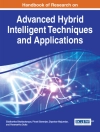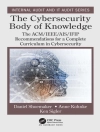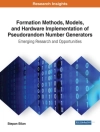The growth of a global digital economy has enabled rapid communication, instantaneous movement of funds, and availability of vast amounts of information. With this come challenges such as the vulnerability of digitalized sociotechnological systems (STSs) to destructive events (earthquakes, disease events, terrorist attacks). Similar issues arise for disruptions to complex linked natural and social systems (from changing climates, evolving urban environments, etc.). This book explores new approaches to the resilience of sociotechnological and natural-social systems in a digital world of big data, extraordinary computing capacity, and rapidly developing methods of Artificial Intelligence.Most of the book s papers were presented at the Workshop on Big Data and Systems Analysis held at the International Institute for Applied Systems Analysis in Laxenburg, Austria in February, 2020. Their authors are associated with the Task Group Advanced mathematical tools for data-driven applied systems analysis created and sponsored by CODATA in November, 2018.The world-wide COVID-19 pandemic illustrates the vulnerability of our healthcare systems, supply chains, and social infrastructure, and confronts our notions of what makes a system resilient. We have found that use of AI tools can lead to problems when unexpected events occur. On the other hand, the vast amounts of data available from sensors, satellite images, social media, etc. can also be used to make modern systems more resilient.Papers in the book explore disruptions of complex networks and algorithms that minimize departure from a previous state after a disruption; introduce a multigrammatical framework for the technological and resource bases of today s large-scale industrial systems and the transformations resulting from disruptive events; and explain how robotics can enhance pre-emptive measures or post-disaster responses to increase resiliency. Other papers explore current directions in data processing and handling and principles of FAIRness in data; how the availability of large amounts of data can aid in the development of resilient STSs and challenges to overcome in doing so. The book also addresses interactions between humans and built environments, focusing on how AI can inform today s smart and connected buildings and make them resilient, and how AI tools can increase resilience to misinformation and its dissemination.
Fred S. Roberts & Igor A. Sheremet
Resilience in the Digital Age [EPUB ebook]
Resilience in the Digital Age [EPUB ebook]
Cumpărați această carte electronică și primiți încă 1 GRATUIT!
Limba Engleză ● Format EPUB ● ISBN 9783030703707 ● Editor Fred S. Roberts & Igor A. Sheremet ● Editura Springer International Publishing ● Publicat 2021 ● Descărcabil 3 ori ● Valută EUR ● ID 7776108 ● Protecție împotriva copiilor Adobe DRM
Necesită un cititor de ebook capabil de DRM












